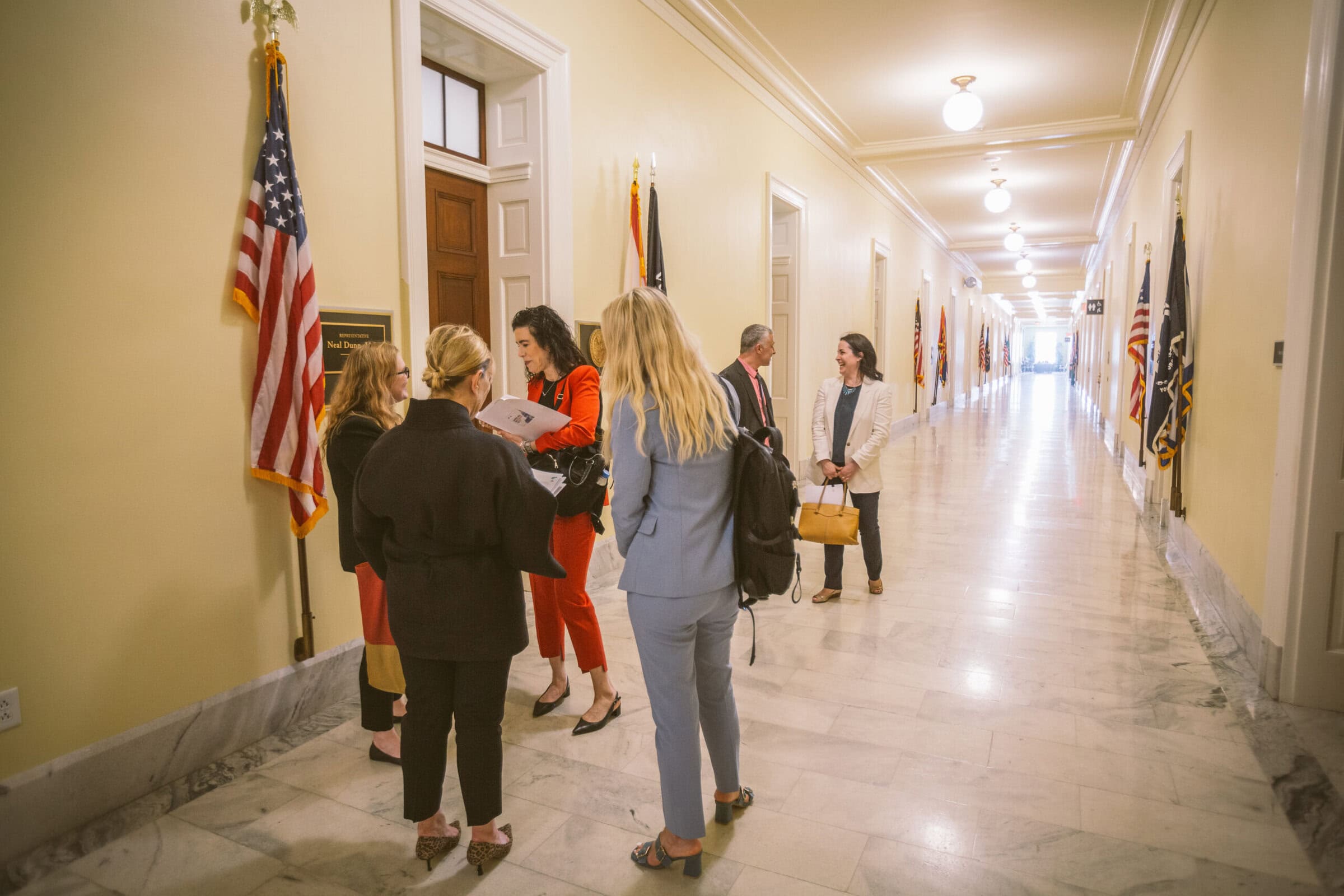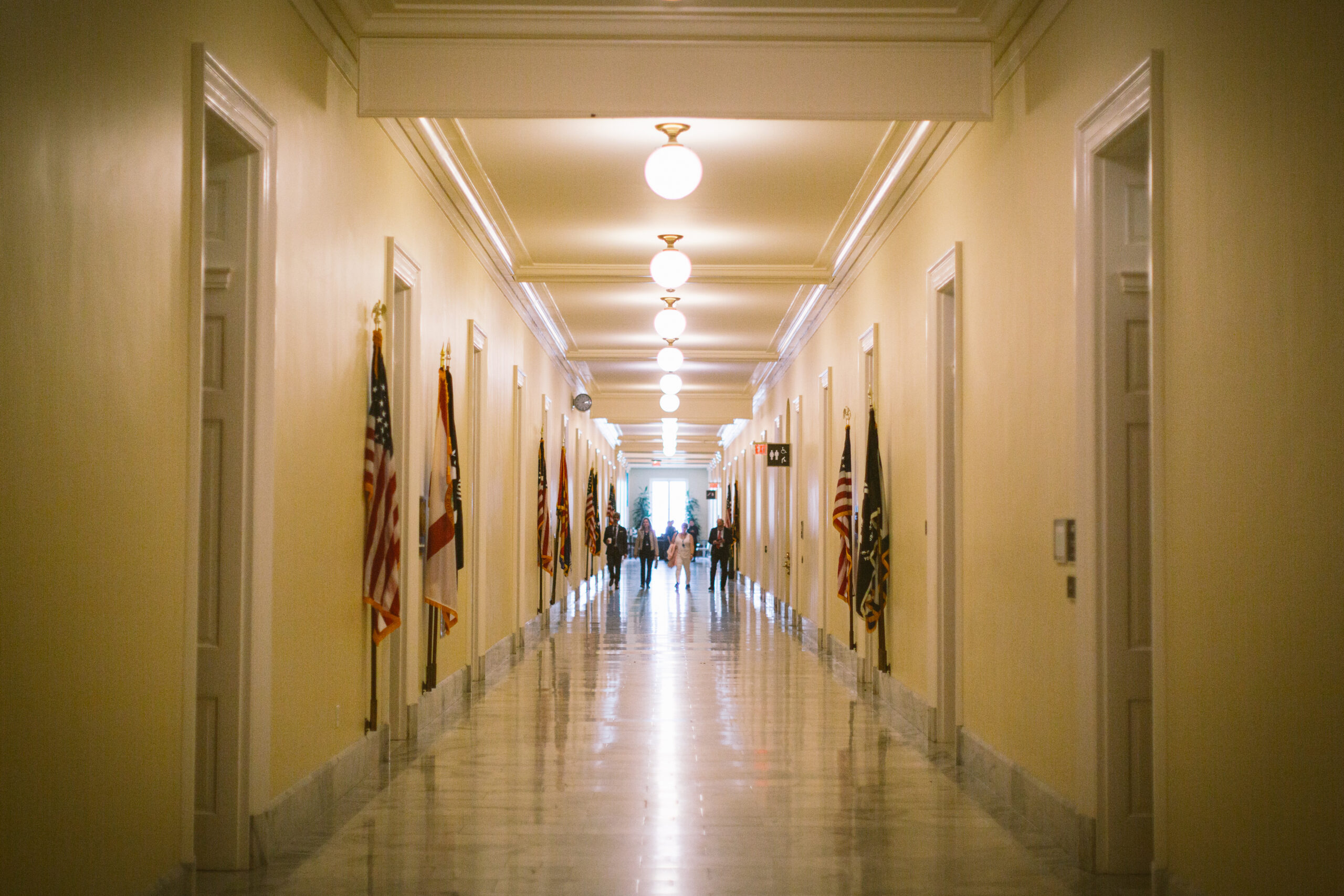Author
Amanda Anderson
VP, Government Relations
Topic
- Government Relations
- Taxation
Starting October 1, 2025, Washington will impose a new tax on “advertising services”, covering both digital and traditional advertising. Under ESSB 5814, any advertising activities—previously taxed under the “Service and Other Activities” B&O classification—will move to the “Retailing” B&O category and become subject to state and local sales tax. The law excludes from the retail sales tax web hosting, newspapers, printing and publishing, radio and television broadcasting, and out-of-home advertising, disproportionately targeting digital advertising services.
Beyond advertising, the bill extends sales tax to other services primarily purchased by businesses, effectively taxing business-to-business transactions in a way that conflicts with established tax policy principles.
The Washington Department of Revenue (DOR) estimates these changes, including the new tax on advertising, will raise about $1.15 billion for the state budget in 2025–27 and about $1.53 billion in 2027–29.
Destination-Based Rules and the Cost to Washington Businesses
Washington’s retail sales tax is “destination-based,” meaning it applies where the business receiving the benefit of a service is located—not where the ads are displayed. As a result, Washington-based companies could owe sales tax on ads shown anywhere in the world, while out-of-state businesses serving Washington audiences may not be taxed. The tax is generally calculated based on the company’s main location or billing address.
Currently, Washington allows a “multiple points of use” (MPU) method for some digital goods and automated services, like software subscriptions, which lets companies allocate tax based on where the service is used. However, digital advertising is treated as a retail product under ESSB 5814, so MPU likely won’t apply. Even if it did, companies with large Washington operations or utilizing a Washington-based advertising agency would still face a disproportionate tax burden compared with out-of-state competitors.
Combined state and local sales tax rates run 10.35 percent in Seattle, 10.3 percent in Redmond, and 10.2 percent in Bellevue, cities that host an array of large companies that advertise worldwide. Under SB 5814, advertisers could pay 10.2 percent or more on every dollar spent on digital advertising purchased by Washington-based businesses worldwide. This change is expected to raise costs and reduce competitiveness in Washington’s tech-driven economy. Businesses that rely on digital marketing and other high-tech services may face higher expenses, which could be passed on to consumers. The tax also introduces administrative burdens, requiring updates to billing systems and compliance processes, and may discourage investment in marketing and innovation.
Ad Industry Advocacy
The 4As, working with ANA and other industry groups, actively opposed new advertising taxes throughout the 2025 legislative session. HB 1887 was originally introduced to create a statewide data broker registry and impose a severance tax, and it advanced through committee review. Just before the vote, lawmakers introduced a substitute bill during last-minute, closed-door negotiations, transforming it into a sweeping tax on nearly all advertising. A veto request letter to Washington Governor Bob Ferguson (D) also went unanswered.
With the legislature adjourned until January 2026, current advocacy efforts are focused on shaping the DOR’s interim guidance through its stakeholder process. The 4As also submitted formal written comments to the DOR’s preliminary survey, addressing key implementation issues that will shape the agency’s upcoming interim guidance, including:
- How should the location of advertising services be sourced?
- Should the multiple points of use (MPU) exemption apply to electronically delivered ad services?
- Should businesses be allowed to use a direct pay permit to remit sales tax on these services?
Future opportunities for public input on interim guidance may arise, and the 4As plans to participate if available.
Washington vs. Maryland: Broader Scope, Similar Risks
Maryland’s digital advertising gross receipts tax —which remains under litigation in both state and federal courts—Washington’s tax applies more broadly, covering creative, production, media, and digital marketing services. It is structured as a sales tax expansion rather than a standalone gross receipts tax on global revenue. Other states, such as New Mexico, Hawaii, and Kentucky, have adopted advertising taxes, though the latter on a smaller scale.
While SB 5814 covers both digital and nondigital advertising, its exclusions for offline media disproportionately target digital advertising, raising potential conflicts with the federal Internet Tax Freedom Act. A legal challenge has not yet emerged but remains possible. As Maryland’s experience shows, enacting a tax may be easier than defending it in court. Ultimately, Washington’s law may face its most significant test in the courts rather than in the legislature.
What’s Next
Once interim guidance is issued, the 4As and other advisory groups will provide more targeted guidance to members. Advertising agencies, marketers, media buyers, and any business purchasing or selling advertising services in Washington should closely monitor the interim guidance and be ready to adjust operational processes. This may include updating billing, accounting, and client invoicing systems, and amending contracts to clarify tax responsibilities or adjust pricing.
***UPDATE**
On September 17, 2025 the Washington State Department of Revenue issued its interim guidance to implement the new tax on advertising. The agency will continue to review these issues for purposes of developing final guidance. This interim guidance statement will remain in effect until the department issues final guidance, cancels this interim statement, or new legislation is enacted.
On September 9, 2025, Comcast filed a lawsuit in Thurston County Superior Court against the State of Washington and its Department of Revenue, arguing that the advertising taxes imposed by ESSB 5814 violate the federal Internet Tax Freedom Act. Comcast claims the law is discriminatory because it does not apply the tax uniformly to all advertising services.
Have a question about Washington State’s new tax on advertising? Please contact Amanda Anderson, 4As VP, Government Relations.
Related Posts



12/17/2025


